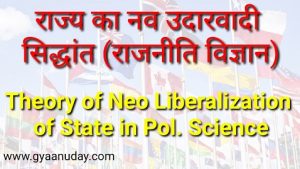About International Politics
As you are already aware that the International politics is about study of how countries interact with each other in the worldwide level. It focuses on the dynamics and relationships between nations, including their policies, strategies, and actions in the international community. This field of study analyzes various aspects such as diplomacy, international law, trade, conflict resolution, and foreign policy.
The impact of international politics on countries is far-reaching and significant.
1. National Security:
International politics directly affects the national security of countries. It plays a crucial role in determining defense alliances, military cooperation, and the response to threats or conflicts. Countries must navigate complex international relations to ensure the safety and protection of their citizens.
2. Economic Cooperation and Trade:
International politics heavily influences economic relationships between nations. Diplomatic ties and agreements shape trade policies, investment opportunities, and economic cooperation. The stability or instability of international politics can impact trade agreements and create trade barriers, affecting a country’s economy.
3. Global Governance:
International politics sets the stage for global governance institutions such as the United Nations, World Trade Organization, and International Monetary Fund. These organizations facilitate dialogue, cooperation, and decision-making among countries. The effectiveness of these institutions depends on the political will and engagement of member states.
4. Interconnectedness and Interdependence:
International politics recognizes that countries are interconnected and interdependent. Actions taken by one country can have rippling effects on others. Global challenges like climate change, terrorism, and public health crises require collective international responses, emphasizing the importance of cooperation and collaboration in international politics.
5. Foreign Policy Decision-Making:
International politics shapes a country’s foreign policy decisions. Political leaders consider the interests, values, and goals of their nation when formulating foreign policies. These decisions are based on considerations such as national security, economic interests, historical alliances, and geopolitical circumstances.
Understanding international politics and its impact is crucial for governments, policymakers, diplomats, and scholars.
By analyzing international relations, countries can anticipate the consequences of their actions, build strategic alliances, negotiate treaties, and contribute to the peaceful coexistence of nations.
READ ALSO :: Differences in Positive and Negative Liberty
International politics can be defined as the study of how countries interact with each other on a global scale. It involves the examination of various political systems, international relations, diplomacy, and the pursuit of power and security. International politics greatly impacts countries in several ways:
In summary, international politics is an essential aspect of political science that explores how countries interact on a global scale. Through its impact on national security, economic relations, global governance, diplomatic relations, conflict resolution, and global issues, international politics significantly influences the conduct and policies of countries in the international arena.
1. National Security: International politics plays a significant role in shaping a country’s national security policies. Countries engage in alliances, military cooperation, arms control negotiations, and intelligence sharing to safeguard their interests and protect their citizens.
READ ALSO :: Scope and Objectives of Politicals Science
2. Economic Relations: International politics heavily influences a country’s economic relations with other nations. Issues such as international trade agreements, tariffs, sanctions, and investment policies are integral parts of international politics that can impact a country’s economy and its ability to attract foreign investment.
3. Global Governance: International politics defines the structure and functioning of global governance institutions such as the United Nations, World Trade Organization, International Monetary Fund, and regional organizations. These institutions determine the rules and norms that govern global interactions and shape a country’s participation in international decision-making processes.
4. Diplomatic Relations: Diplomacy is a fundamental tool within international politics. Countries engage in diplomatic negotiations, state visits, and diplomatic exchanges to establish and maintain relationships with other nations. Effective diplomacy can help resolve conflicts, foster cooperation, and promote a country’s interests on the global stage.
5. Conflict Resolution: International politics plays a crucial role in resolving conflicts between countries. Through negotiations, mediations, and peacekeeping efforts, international political actors seek to avoid or mitigate conflicts that can have devastating consequences for nations involved.
6. Human Rights and Global Issues:
International politics addresses global issues such as human rights, climate change, terrorism, migration, and public health. It facilitates international cooperation, the formulation of policies, and the implementation of measures to tackle these challenges collectively.
International politics refers to the study of interactions and relationships between countries in the global arena. It encompasses understanding the political dynamics that shape diplomatic efforts, global governance, international organizations, and conflicts. The impact of international politics on countries is significant and wide-ranging, affecting various aspects of a nation’s economic, social, and security landscape.
READ ALSO :: What is Political Science ? Its Requirement in Present Time
One of the key impacts of international politics on countries is in terms of economic considerations. International trade, investment, and financial policies are heavily influenced by political decisions made at the global level. For instance, trade agreements and tariffs negotiated between nations can determine the competitiveness and profitability of industries within a country’s economy. Additionally, the political climate in international relations can affect investor confidence and foreign direct investment, which directly impacts a country’s economic growth and development.
International politics also has a profound impact on a country’s security and defense strategies. Political alliances, military interventions, and conflicts are shaped by the dynamics of international politics. Countries often align themselves with other nations based on shared political ideologies or common security interests. These alliances can offer protection, deterrence, or even provoke regional or global tensions. Decisions made by major powers or international organizations on issues such as arms control, non-proliferation, and security cooperation directly influence a country’s defense policies and capabilities.
Furthermore, international politics has social and cultural implications for countries. The interconnectedness of nations through global communication, migration, and cultural exchange has led to the diffusion of ideas, values, and norms across borders. Political interactions and agreements can shape social issues such as human rights, migration policies, and environmental conservation efforts. Countries often collaborate with other nations to address global challenges and negotiate agreements on issues such as climate change, sustainable development, and human rights.
In conclusion, international politics plays a crucial role in shaping a country’s economic, security, and social landscape. It affects trade policies, investment flows, defense strategies, and cultural exchanges. Understanding, (what is international Politics its Impact on Countries) the dynamics of international politics is essential for nations to navigate the global stage effectively and pursue their national interests in a rapidly evolving and interconnected world.



